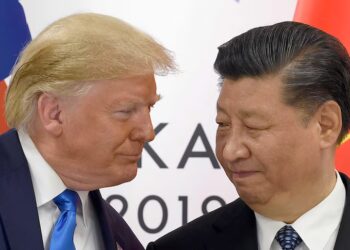ISLAMABAD; Moody’s Ratings has upgraded Pakistan’s credit rating from Caa2 to Caa1 with a stable outlook, citing an improved financial position underpinned by support from the International Monetary Fund (IMF) and the government’s commitment to fiscal consolidation.
In its statement issued Wednesday, the agency said the upgrade follows similar moves by S&P Global Ratings and Fitch Ratings over the past four months, reflecting growing market confidence in Pakistan’s ability to stabilize its economy. The decision comes after repeated pledges by Prime Minister Shehbaz Sharif’s administration to maintain the reform trajectory and strengthen public finances.
Moody’s announced it has raised Pakistan’s local and foreign currency issuer and senior unsecured debt ratings to Caa1 from Caa2, and upgraded the senior unsecured MTN programme rating to (P)Caa1 from (P)Caa2. The outlook for both the Government of Pakistan and The Pakistan Global Sukuk Programme Co Ltd has been revised to stable from positive.
The agency said the improved rating reflects Pakistan’s strengthening external position, supported by progress in implementing reforms under the IMF’s Extended Fund Facility (EFF) programme. Foreign exchange reserves are expected to continue improving, although Pakistan will remain reliant on timely financing from international partners.
On the fiscal side, Moody’s noted that the government’s revenue base is expanding, helping to gradually strengthen what remains a weak fiscal position. Debt affordability has improved but is still among the lowest of rated sovereigns. The agency said the new rating also factors in Pakistan’s persistent governance challenges and high political uncertainty.
Balanced Risks Ahead
Moody’s stable outlook indicates balanced risks to Pakistan’s credit profile. On the upside, faster-than-expected improvement in debt servicing costs and the external balance could further boost the rating. On the downside, delays in reform implementation could jeopardize access to official financing and weaken the external position once again.
The upgrade also applies to the backed foreign currency senior unsecured ratings for The Pakistan Global Sukuk Programme Co Ltd, with Moody’s stating that the associated payment obligations are direct commitments of the Pakistani government.
Country Ceilings Raised
Alongside the sovereign rating upgrade, Moody’s increased Pakistan’s local and foreign currency country ceilings to B2 and Caa1, respectively, from B3 and Caa2.
The agency explained that the two-notch gap between the local currency ceiling and the sovereign rating reflects the government’s large role in the economy, weak institutions, and significant political and external vulnerabilities. The two-notch gap between the foreign currency ceiling and the local currency ceiling accounts for incomplete capital account convertibility, relatively weak policy effectiveness, and the risk of potential transfer and convertibility restrictions.
Moody’s concluded that while Pakistan’s credit fundamentals are improving, sustained progress will depend on continued policy discipline, timely external financing, and structural reforms to reduce economic vulnerabilities.

























